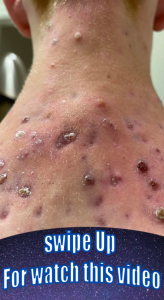Myths About Natural Health You Should Ignore
Natural health remedies and lifestyle habits are often promoted as safer, more holistic alternatives to modern medicine. While many natural practices—like eating whole foods, exercising, getting enough sleep, and managing stress—have real benefits, the world of “natural health” is also filled with misinformation and myths that can be misleading, harmful, or simply a waste of time and money. Below, we explore some of the most common myths about natural health that you should absolutely ignore.
1. “Natural” Means “Safe”
One of the most dangerous myths is that anything labeled “natural” is automatically safe. This is simply not true. Many poisonous substances found in nature—arsenic, hemlock, and deadly nightshade, for example—are natural but extremely toxic. Likewise, natural supplements can interfere with medications or worsen certain health conditions.
Just because something is derived from a plant or is labeled “organic” doesn’t mean it’s harmless. Herbal supplements can cause allergic reactions, liver damage, or even organ failure if misused. Always talk to a healthcare professional before starting any new supplement, even if it seems “harmless.”
2. Detoxes and Cleanses Remove “Toxins” from Your Body
From juice fasts to colon cleanses to herbal detox teas, the wellness industry pushes the idea that your body needs help “flushing out toxins.” But your body already has a sophisticated system in place—your liver, kidneys, lungs, and skin—all working around the clock to eliminate waste and toxins.
There is no scientific evidence that detox diets or products remove anything your body isn’t already getting rid of naturally. Some detox programs can even be harmful, causing dehydration, nutrient deficiencies, or electrolyte imbalances. Instead of a drastic cleanse, a healthy diet rich in fiber, fruits, vegetables, and water supports your body’s natural detox processes far more effectively.
3. Essential Oils Can Cure Illnesses
Essential oils have surged in popularity, and while many smell nice and can improve mood or reduce stress through aromatherapy, they are not miracle cures. Claims that essential oils can “treat cancer,” “cure depression,” or “replace antibiotics” are not supported by credible scientific evidence.
In some cases, applying essential oils to the skin can cause allergic reactions or burns. Ingesting them can be toxic. While they may support emotional well-being, they should not be relied upon as a substitute for medical treatment.
4. Crystals Can Heal Your Body
Crystal healing is based on the belief that certain stones can channel energy into your body to promote physical and emotional healing. While holding or wearing crystals can have a calming or symbolic effect for some people, there is no scientific evidence that crystals hold healing powers or influence physical health in any measurable way.
The danger lies in people forgoing real medical care in favor of crystals, especially for serious health conditions. Crystals can be used for spiritual or meditative purposes, but not as a replacement for proven medical treatments.
5. Vaccines Are “Unnatural” and Should Be Avoided
Some proponents of natural health reject vaccines as “unnatural,” claiming they harm the immune system. This myth has been debunked time and time again by decades of research. Vaccines are one of the most effective public health tools ever developed, protecting millions from diseases like measles, polio, and whooping cough.
Natural immunity—developed after catching a disease—can be dangerous, especially for vulnerable populations. Vaccines allow your body to build protection safely. Rejecting vaccines based on natural health myths can put entire communities at risk.
6. Alkaline Diets Can Change Your Body’s pH and Prevent Cancer
Proponents of the alkaline diet claim that eating certain foods can make your body less acidic and therefore prevent disease, especially cancer. However, your body tightly regulates its pH levels, especially in your blood, and diet has little impact on this system.
The food you eat may change the pH of your urine, but not your blood or organs. While an alkaline diet encourages lots of fruits and vegetables—which are healthy—it’s not because of any magical pH-balancing properties. The idea that cancer cells can’t survive in an “alkaline environment” is a gross oversimplification and not how cancer biology works.
7. You Don’t Need Doctors if You Use Natural Remedies
One of the most troubling myths is that with the right combination of herbs, diet, and lifestyle, you can eliminate the need for doctors. While prevention is critical, natural health is not a substitute for medical care. Many illnesses, especially chronic or life-threatening ones, require diagnostic tools and treatments that only modern medicine can provide.
Ignoring symptoms, refusing diagnostic tests, or delaying professional care in favor of home remedies can lead to severe complications or even death. Integrating natural practices into your life is fine—ignoring doctors is not.
8. Supplements Can Replace a Healthy Diet
There’s a common belief that if you take the right mix of vitamins and supplements, you don’t need to eat a balanced diet. But whole foods provide more than just isolated nutrients—they offer fiber, antioxidants, and synergistic compounds that supplements can’t replicate.
Moreover, many supplements are poorly regulated, and their quality can vary drastically. Some are contaminated, contain misleading doses, or aren’t absorbed well. Over-supplementing can also be dangerous; for example, too much vitamin A or iron can be toxic. Focus on eating real food first, and use supplements only when truly needed.
9. Natural Birth Is Always Better Than Medical Intervention
Natural childbirth advocates often promote the idea that all interventions—like epidurals, C-sections, or inductions—are bad or unnatural. While many women have empowering, healthy natural births, modern medical interventions can be life-saving for both mother and baby.
There is no one-size-fits-all birth experience. What matters most is a safe delivery, not adhering to a rigid natural ideal. Shaming women for choosing pain relief or medical assistance during birth is harmful and unfair.
10. “Ancient Wisdom” Is Always Superior to Modern Science
Many natural health beliefs are rooted in traditional or ancient practices. While some of these have genuine merit, not everything that’s old is effective—or safe. Bloodletting was practiced for centuries, but that doesn’t mean it was good medicine.
It’s important to evaluate each practice on its own merits. Modern science often validates traditional remedies (like turmeric’s anti-inflammatory properties), but it also debunks many outdated or dangerous beliefs. A healthy respect for tradition is good—but blind loyalty can be dangerous.
Conclusion: Balance Is Key
Natural health can be a powerful part of your wellness journey—but only when it’s guided by evidence, not myths. The best approach is an integrative one: combine the best of modern medicine with healthy lifestyle choices rooted in nature. Don’t fall for marketing hype, fear-based tactics, or magical thinking. Be skeptical, ask questions, and always prioritize safety over trends.

